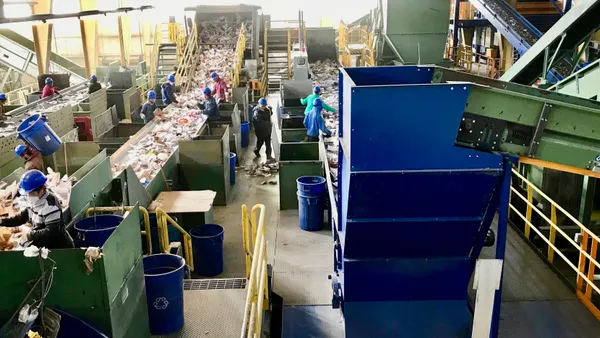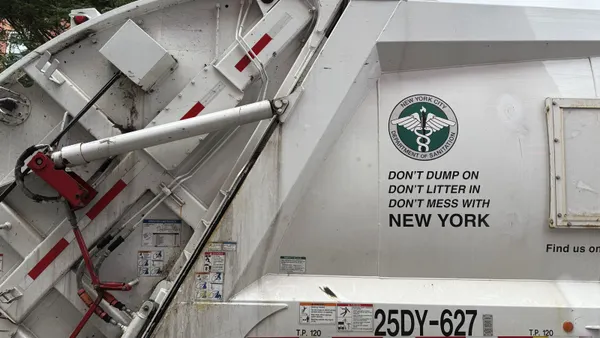Dive Brief:
- A new report commissioned by the Business and Sustainable Development Commission says that reducing food waste in the value chain, particularly in developing countries, through better storage and transportation infrastructure could yield up to $405 billion in economic benefits by 2030.
- Additionally, the report notes that reducing consumer food waste could create up to $220 billion in opportunities and reducing packaging waste could generate up to $65 billion.
- These three areas are part of 14 overall business opportunities in food and agriculture which the report says would require an annual investment of $320 billion but could yield $2.3 trillion per year by 2030.
Dive Insight:
This report is based on the 2015 United Nations Sustainable Development Goals, one of which is to reduce food waste 50% by 2030 at the retail and consumer levels as well as in supply chains. The findings show that Asia stands to gain the greatest economic benefits from food waste reduction due to large amounts of arable land and future consumption growth. Reducing waste in the value chain would be most useful for developing regions, while reducing consumer waste would be most beneficial for more developed countries such as South Korea and Japan.
The U.N. goals are seen as the inspiration for other global efforts around food waste such as major donations and the first universal measurement standard. This also inspired a similar 50% reduction by 2030 goal in the U.S. which recently marked its first anniversary with mixed reactions on how that target will be reached.
Though supply chain reduction is seen as the first step, the waste industry is also seen as having an integral role to play in doing more than just processing organics at the end of the hierarchy. As noted in the commission's report, packaging is an important part of preventing spoilage but also creates large amounts of mismanaged waste that can have environmental consequences.










